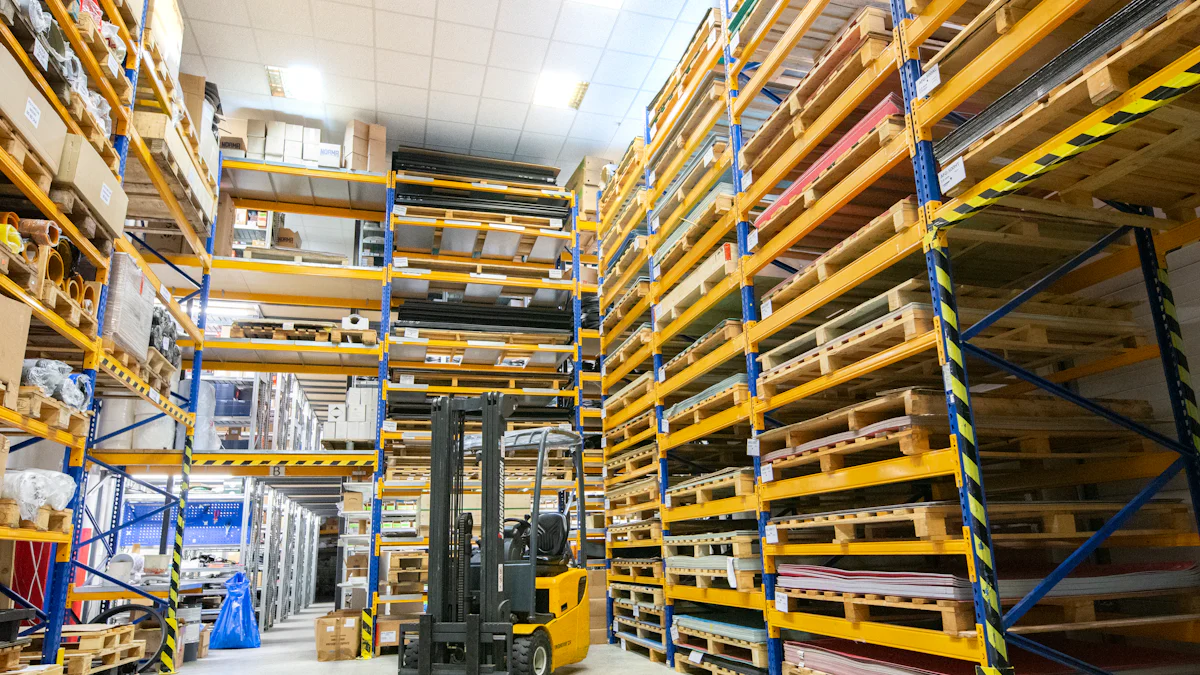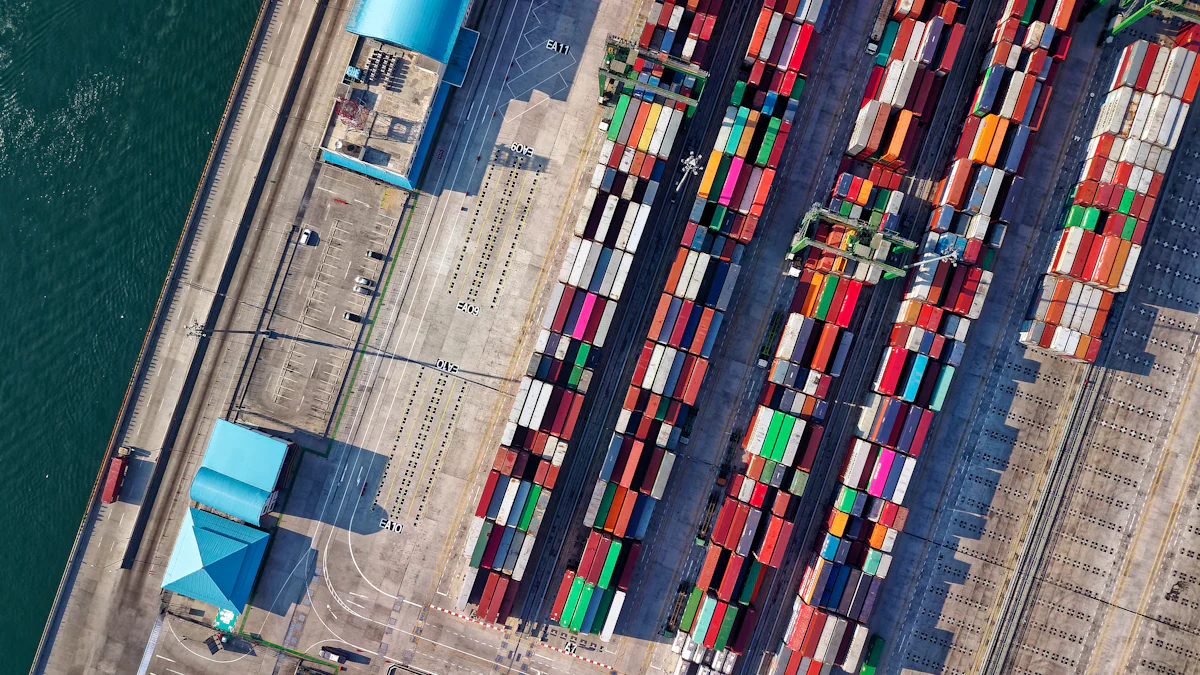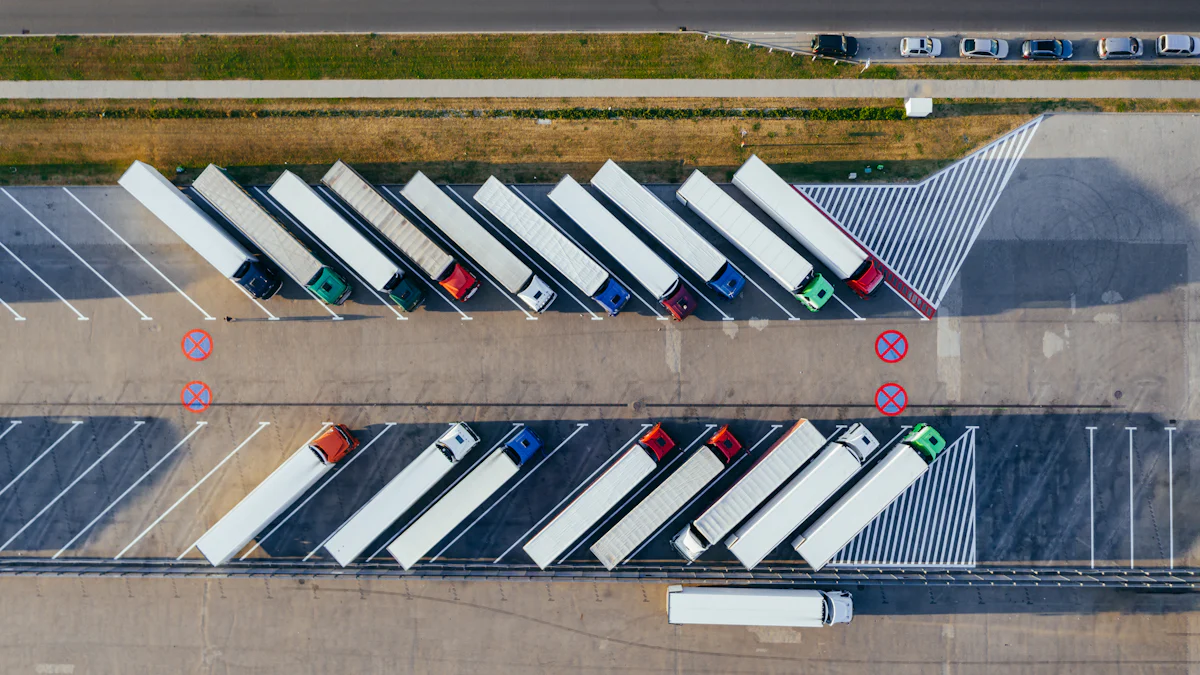Understanding the Role of IoT in Modern Logistics

Internet of Things (IoT) revolutionizes the logistics industry by seamlessly connecting physical objects to the digital world. Its significance lies in optimizing delivery routes, enhancing operational efficiency, and transforming supply chain visibility. This blog delves into the profound impact of Internet of Things logistics, exploring real-time tracking, predictive maintenance, and future trends shaping the industry.
The Impact of IoT on Logistics

In the realm of modern logistics, the influence of Internet of Things (IoT) is profound and transformative. Real-time tracking, a core component enabled by IoT devices, revolutionizes how fleet management and asset monitoring are conducted.
Real-Time Tracking
Fleet Management: With IoT technology, logistics companies can monitor their fleets in real time, ensuring optimal performance and timely deliveries without delays.
Asset Monitoring: Through IoT sensors, assets like containers and vehicles are continuously tracked, providing precise location data that enhances operational efficiency.
Predictive maintenance, another critical aspect empowered by IoT in logistics operations, focuses on proactive measures for vehicle health monitoring and maintenance scheduling.
Predictive Maintenance
Vehicle Health Monitoring: By utilizing IoT devices to monitor vehicle conditions in real time, logistics companies can predict potential issues before they escalate, reducing downtime significantly.
Maintenance Scheduling: Through predictive analytics derived from IoT data, maintenance tasks are scheduled efficiently based on actual usage patterns rather than fixed timelines.
Operational efficiency is further enhanced through IoT-driven capabilities such as route optimization and warehouse automation.
Operational Efficiency
Route Optimization: Leveraging IoT data insights allows for dynamic route adjustments based on traffic conditions or delivery priorities, optimizing travel times and fuel consumption.
Warehouse Automation: By integrating IoT devices within warehouses, tasks like inventory management and order fulfillment are automated with precision and speed.
The seamless integration of IoT technologies into logistics operations not only streamlines processes but also elevates the industry's standards for efficiency and customer satisfaction.
Applications of IoT in Logistics

Supply Chain Visibility
Sensor Integration
In the realm of logistics, Internet of Things logistics plays a pivotal role in enhancing supply chain visibility through sensor integration. By deploying IoT devices equipped with sensors throughout the supply chain, companies can monitor the movement and condition of goods in real time. These sensors provide valuable data on temperature, humidity, and location, ensuring that products remain intact and reach their destinations without compromise.
The integration of data analytics into IoT systems further amplifies the benefits of supply chain visibility. By analyzing the vast amount of data collected by IoT sensors, logistics companies can gain actionable insights into their operations. This data-driven approach enables them to identify inefficiencies, optimize routes, and make informed decisions to streamline the entire supply chain process.
Customer Experience
Delivery Status Updates
Enhancing customer experience is a top priority for logistics companies, and IoT technology plays a crucial role in achieving this goal. Through delivery status updates, customers are empowered with real-time information about the whereabouts of their shipments. By leveraging IoT devices to track deliveries accurately, companies can provide customers with precise delivery estimates and notifications, fostering transparency and trust.
Enhanced Communication
Effective communication is key to building strong relationships with customers in the logistics industry. With enhanced communication facilitated by IoT solutions, companies can interact with customers seamlessly. Whether it's sending automated alerts about delays or offering personalized notifications, IoT-enabled communication ensures that customers are informed every step of the way.
Resource Optimization
Space Utilization
Optimizing resources is essential for maximizing efficiency in logistics operations. Through space utilization, companies can make the most out of their storage facilities and transportation vehicles. By employing IoT technology to monitor space availability and usage patterns, logistics providers can optimize storage layouts, reduce wastage, and improve overall operational productivity.
Inventory Management
Efficient inventory management is critical for meeting customer demands while minimizing costs. With IoT-enabled inventory management, companies can track stock levels in real time and automate replenishment processes. By utilizing RFID tags and sensors to monitor inventory movement and storage conditions, logistics firms can prevent stockouts, reduce excess inventory, and ensure timely order fulfillment.
Future Trends in IoT and Logistics
As the landscape of logistics continues to evolve, embracing Internet of Things logistics opens doors to a realm of advanced analytics, enhanced connectivity, and sustainable practices. The future trends in IoT and logistics are poised to revolutionize how companies operate, interact with customers, and uphold environmental responsibilities.
Advanced Analytics
Predictive Insights
Harnessing the power of Internet of Things logistics, predictive insights emerge as a game-changer in anticipating operational needs. By analyzing real-time data from IoT devices, logistics providers can forecast maintenance requirements, optimize resource allocation, and preempt potential disruptions. Predictive insights enable proactive decision-making based on data-driven projections rather than reactive responses to issues.
AI Integration
The integration of Artificial Intelligence (AI) into IoT systems propels logistics into a new era of efficiency and innovation. AI algorithms leverage the wealth of data collected by IoT sensors to optimize route planning, predict consumer demand patterns, and automate decision-making processes. Through AI integration, logistics companies can enhance operational agility, reduce costs, and deliver superior service quality.
Enhanced Connectivity
5G Networks
The advent of 5G networks heralds a significant leap forward in connectivity for Internet of Things logistics applications. With ultra-fast speeds and low latency offered by 5G technology, IoT devices can communicate seamlessly in real time across vast logistical networks. This high-speed connectivity empowers logistics operations with instant data transmission for immediate decision-making, enhancing overall responsiveness and agility.
Edge Computing
Edge computing emerges as a pivotal component in the convergence of IoT and logistics infrastructure. By processing data closer to its source at the network edge rather than relying solely on centralized cloud servers, edge computing reduces latency and enhances system reliability. In the context of logistics, edge computing enables rapid data analysis for real-time monitoring of shipments, predictive maintenance alerts, and dynamic route adjustments.
Sustainable Logistics
Energy Efficiency
Embracing sustainability initiatives is paramount in shaping the future of Internet of Things logistics towards energy-efficient practices. IoT technologies play a crucial role in optimizing energy consumption across logistical operations by monitoring vehicle performance metrics, optimizing warehouse lighting systems, and implementing smart energy management solutions. Energy efficiency not only reduces operational costs but also minimizes carbon footprints for environmentally conscious supply chains.
Green Technologies
The integration of green technologies into IoT-enabled logistics operations signifies a commitment to environmental stewardship. From electric vehicles powered by renewable energy sources to smart packaging solutions that minimize waste generation, green technologies offer sustainable alternatives for traditional logistical practices. By adopting eco-friendly innovations driven by IoT capabilities, logistics companies pave the way for greener supply chains that prioritize environmental conservation alongside operational excellence.
Embracing the transformative power of Internet of Things logistics is paramount for modern supply chains. The efficient real-time tracking and predictive maintenance provided by IoT devices optimize operations and enhance customer satisfaction. By prioritizing resource optimization and enhancing connectivity through advanced analytics, logistics companies can stay ahead in the dynamic industry landscape. The future of IoT in logistics holds promises of sustainable practices, AI integration, and 5G networks that will redefine operational standards and environmental responsibilities.
